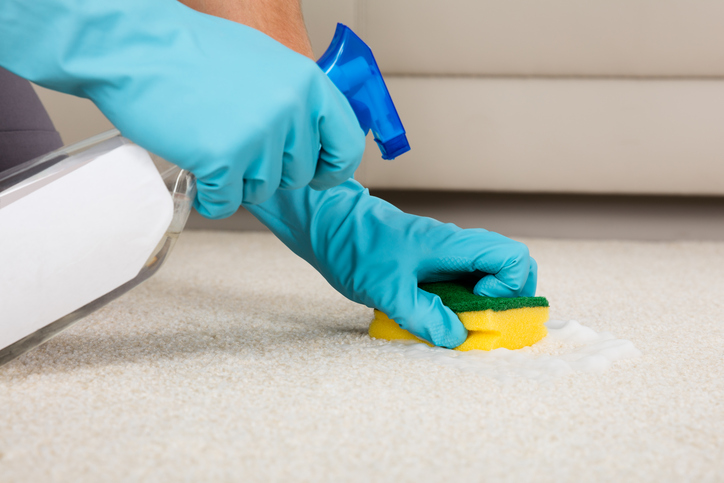
9 tricks and tricks for maintaining your air conditioning
It's summer, so your HVAC (heating, ventilation, air conditioning) system needs to excel. Stay cool this summer with our list of air conditioning maintenance tips and tricks. How to deal with that old HVAC system? Checking the condition of your system is much more important than you think.
You can do a number of things yourself to ensure the quality of your results and the health of your family. Whether you have an HVAC system or not, your home's ventilation and cooling processes directly impact the air you breathe. We'll go over some air conditioning maintenance tips and tricks so you can stay cool and healthy this summer. Air conditioning maintenance tips. Some of these tips will not apply to everyone. Systems are different and different homes have unique cooling methods. That said, most heating and air conditioning systems are made up of similar parts. We will cover a number of the most essential aspects of maintaining your home and inform you when you will want to call a professional. Let's get started:
1. Air filters
What will require the most maintenance of the ventilation system will be your filter. This is also a good thing, as a filter can easily be changed or cleaned. Unless you have a really high-end air conditioning system, you should be able to clean or change the filter yourself. How often you change your filters depends on the style of filter required by your system and the environment you live in. If you are unsure, an internet search should easily specify the type of filter required and what is needed to maintain it. At the very least, you can check your filter and clean it as best as possible or ideally replace it to improve the air quality of your home.
2. Coil cleaning
Coils will encounter and accumulate a lot of dirt over time, especially if they are outdoors. This dirt can prevent the coils from evaporating the condensation that forms on them, which reduces the quality of the system's work. You will not be as comfortable, as the temperature will not be as hot or cold as it could be and your system may consume more energy due to dirt.
3. Evaporator gas level
Many systems have an evaporator which is really the heart of the system's operation. Heating and cooling usually start in the evaporator. Some devices allow you to check the evaporator gas level. This level must be controlled if you want your system to function properly. Normally it should never be recharged unless there is a leak or improper initial installation. You may be able to refill the gas yourself, but if there are no clear instructions for your system, we recommend calling a professional.
4. Condensation drain
The condensation drain line is usually the slatted screen of your outdoor unit that children use to draw on. If you are not familiar with this description, you can consult your system manual. Often, these slatted screens become dirty and obstruct moisture. When the lines are clogged, the system can no longer function properly and condensation turns into moisture which can cause leaks. You can clean these parts by spraying or wiping them. Just make sure the system is free of debris!
5. Straighten your slats
The 'screens' mentioned in the last section are made up of slats. It is important to keep these lines straight, as bumps and dents can lead to accumulation. It is also important that the airflow allows condensation to evaporate. You can use a 'specialized comb to straighten the slats' or simply use several plastic cards. Be careful, however, as these are sensitive parts of the system.
6. Cover your unit when not in use
If you are leaving your home for an extended period or not using your air conditioner in winter, try to cover it. This doesn't have to be too complicated. Just try putting a tarp over the outdoor unit or surrounding it with pieces of plywood. The idea is to prevent debris from entering when the system is not in use.
7. Keep your condenser balanced
Sometimes the location of your outdoor system's condenser is placed directly on the ground, which becomes subject to slight changes over time. It is important that it is kept on a flat surface to function properly. When soil sinks during seasonal changes, the system will not perform as well as it could. You can raise your system on some kind of support or consider placing it on a solid concrete base.
8. Introduce smart technology
Smart thermostats and similar home automation technology can be annexed to your system with a few upgrades. These will significantly reduce your energy consumption if you program them correctly. In addition, you can have a higher degree of control when it comes to heating and cooling your home. In most cases, you can adjust the thermostat from your phone remotely with your smartphone even if you are not at home.
9. Be careful
The basic maintenance indicated above should be handled according to your level of knowledge. Simple HVAC problems do not always have to be dealt with by a certified professional. That said, many problems require professional help. Problems related to your ducts or faulty systems are serious problems. Few things affect your health more than the quality of your air. Respiratory illnesses are a reality and you could put yourself at risk if you are not careful with your ducts and air conditioning systems. If you haven't had a health check-up in a while, there's no harm in having one soon. You probably won't notice when things go wrong, either. HVAC systems are reliable, but there's no telling when there's mold or other pollutants in the air.
